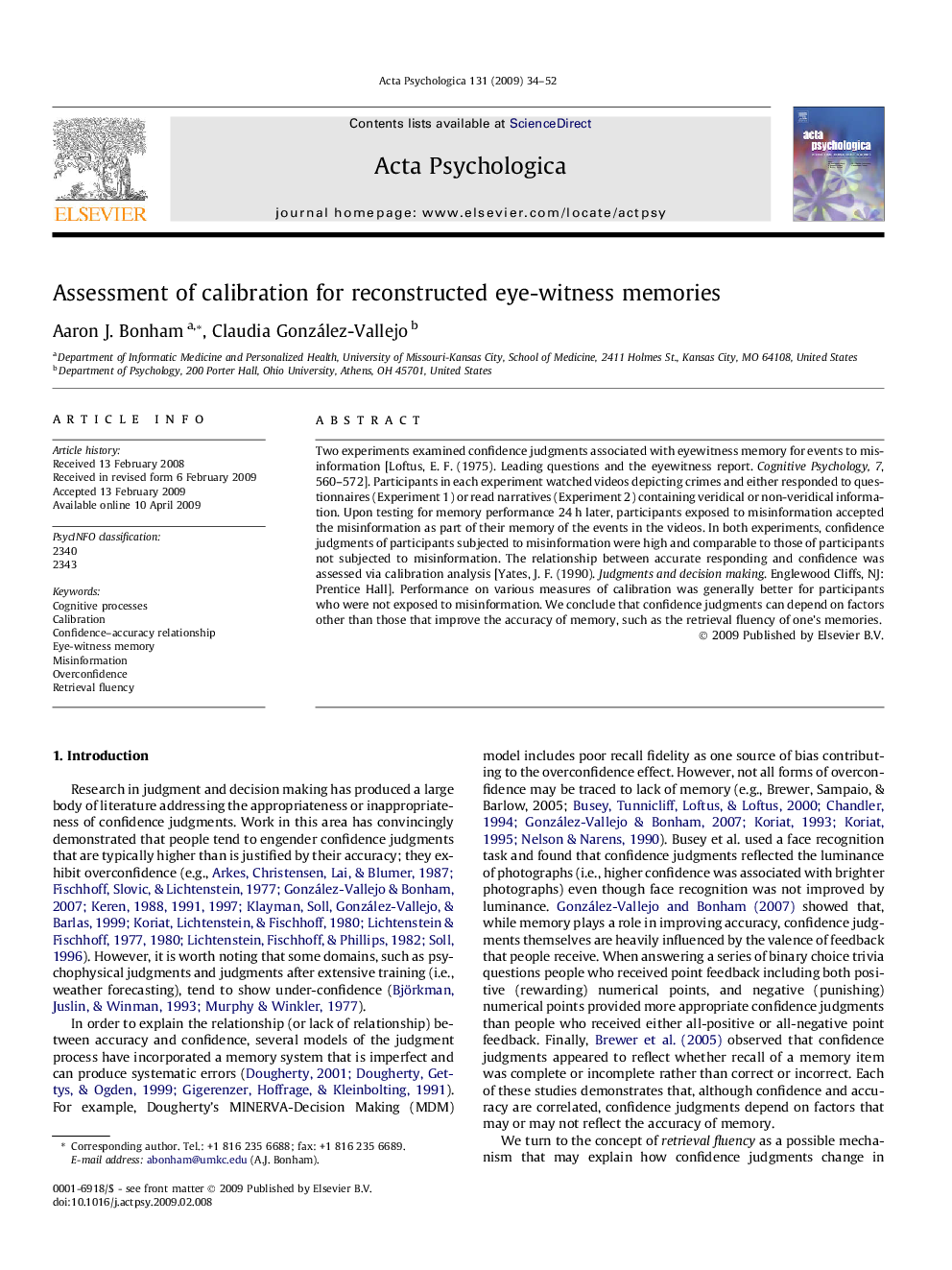| Article ID | Journal | Published Year | Pages | File Type |
|---|---|---|---|---|
| 920335 | Acta Psychologica | 2009 | 19 Pages |
Two experiments examined confidence judgments associated with eyewitness memory for events to misinformation [Loftus, E. F. (1975). Leading questions and the eyewitness report. Cognitive Psychology, 7, 560–572]. Participants in each experiment watched videos depicting crimes and either responded to questionnaires (Experiment 1) or read narratives (Experiment 2) containing veridical or non-veridical information. Upon testing for memory performance 24 h later, participants exposed to misinformation accepted the misinformation as part of their memory of the events in the videos. In both experiments, confidence judgments of participants subjected to misinformation were high and comparable to those of participants not subjected to misinformation. The relationship between accurate responding and confidence was assessed via calibration analysis [Yates, J. F. (1990). Judgments and decision making. Englewood Cliffs, NJ: Prentice Hall]. Performance on various measures of calibration was generally better for participants who were not exposed to misinformation. We conclude that confidence judgments can depend on factors other than those that improve the accuracy of memory, such as the retrieval fluency of one’s memories.
